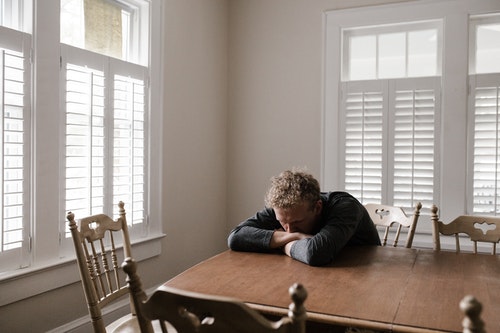Each of us goes through sporadic body pains just as much as we experience emotional pains. In fact, acute pain is a significant response of the central nervous system that helps warn us about probable injuries. In the presence of an injury, pain indicators pass from the pained part through the spinal cord and then to the brain.
Technically, the pain we feel when we are injured eventually decreases as we heal, but severe pain is not the same as usual discomfort.
Lingering Discomfort: Impact On Daily Life
When you suffer from severe pain, the pain indicators keep pouring toward the body and brain, even when the injury has already healed. This may persist for weeks or even years. This type of discomfort hinders a person’s strength, mobility, endurance & resiliency.
Chronic pain and depression can significantly impact one’s overall health, making it challenging to engage in daily activities. Seeking appropriate treatment, care, and therapy is essential in managing both the physical and mental aspects of this condition.
How is chronic pain defined and described? For starters, severe pain is a type of pain that persists for no less than 12 weeks. Chronic pain symptoms might feel dull or excruciating, and it can manifest as a burning or throbbing feeling in the areas affected. It can be constant or intermittent without any evident reason. The discomfort can also be felt in various areas of the body.
The Origins
Typically, chronic pain is triggered by a trauma or injury, like a fractured bone or muscle soreness. Apparently, severe pain begins following nerve damage. This nerve damage leads to more severe discomfort that is persistent and long-term. When this occurs, focusing on the primary injury might not be the solution. In several instances, though, people go through chronic pain even when there was no initial injury.
Side Effects
The inherent triggers of chronic pain are still unknown and the pain may occasionally lead to a primary health problem, including:
- Fibromyalgia – generalized pain affecting the muscles and bones.
- Interstitial cystitis – a long-term condition described by pain and bladder pressure.
- Inflammatory bowel disease – a gamut of illnesses that results in excruciating inflammation in the digestive system that is severe.
- Fatigue syndrome – is described as prolonged exhaustion that typically manifests with pain.
Having severe discomfort can be a big hassle. It does not only give you intolerable discomfort but may also ruin your concentration during the day. While several factors may cause this condition, chronic pain caused by persistent depression can be more difficult to manage.
Understanding Prolonged Discomfort: Connection To Mood Disorders
But first, what is chronic pain, and how can major depression make it worse?
Chronic pain is a feeling of pain or discomfort that may last for a prolonged period. Usually caused by unwanted injuries, severe pain can start from one area to another. The discomfort can make the body more sensitive. And if it aggravates further, it can cause mood changes, uncontrollable stress, or even delayed mental and physical activity.
Consequently, these body sensations due to chronic stress can affect other aspects of life. Depression and chronic pain, often coexisting in patients with chronic pain conditions, can have a profound impact on various aspects of life. These depressive symptoms, when part of a depressive disorder or bipolar disorder, may affect work performance and relationships with others, leading to emotional pain.
A comprehensive treatment plan addressing both the physical symptoms and depression is crucial for improving the overall well-being of individuals facing this dual challenge. Such a plan may include therapy and other forms of care tailored to the specific needs of those dealing with depression and chronic pain, ensuring they receive the necessary support to manage their health conditions effectively.
When you have severe discomfort, you could potentially have persistent stress and tension, and eventually, these can lead to various issues that are closely related to depression. Problems that people depression and severe discomfort may include constant anger, fatigue, financial issues, lack of sexual interest, fear of emotional or physical pain trauma, social seclusion, sleep problems, weight loss, or weight gain, including negative thoughts, among others.

Sleep & Diet
With the vicious cycle of depression, chronic pain becomes more aggravating. Treatment for severe pain requires ample sleep and a balanced, well-timed diet. But all these can be undermined when someone has a major depressive disorder. This mental condition can make healing more complicated as it affects specific lifestyle choices fit for combating physical symptoms of chronic pain.
According to recent data from the World Health Organization (WHO), more than 75% of people with depression also manifest discomfort or uncomfortable sensation. These unpleasant feelings often include back pains and headaches. This data may root in the cyclic or two-way relationship between depression and chronic pain.
What Might Be The Reason For The Overlap?
According to national institute experts, both chronic discomfort and depression share several neurotransmitters, which are brain chemicals that function as messengers that go through nerves. The two also have the same nerve pathways coursing through the spinal cord and the brain. Additionally, the negative effects of severe pain on an individual’s daily life may also be a trigger for depression. It makes him suffer from enormous difficulties, mostly in areas that include his job, sleep, relationships, physical activities, social network, and more. These difficulties can all add to depression in many people, especially those who are prone to clinical depression.
Consequently, this intensifies the discomfort and decreases one’s capacity to survive with it, and it may be impossible for him to ensure safety and get rid of the stress and negativities in his life.
The Impact Of Negative Emotions
In general, discomfort causes feelings of distress and agony or emotions of irritability and stress. And as negative emotions continue to pile up, it increases the tendency to develop mild depression.
At the same time, depression can also trigger unusual body pains and sometimes headaches. Studies say that these conditions involve similar brain chemicals called neurotransmitters. They also have the same nerve pathways both in the brain and in the spinal cord.
To date, there is still no clear association between the two. But medication to alleviate their symptoms is usually in conjunction with both conditions. Simply put, treatments for these conditions are antidepressant medications that can work for both.
Other treatments may include lifestyle changes, diet plans, or recommendations for exercise and other physical activities. Therapies also play a significant role in mitigating the signs of depression.
If you want to know the systematic review, specifics, and treatment of chronic pain and how an untreated depression affects its current state, you can check out the FAQ below:
Frequently Asked Questions
Can Pain Be Caused By Depression?
One of the symptoms of depression is chronic pain that does not seem to have a physical source. A study published in 2017 has shown that 85 percent of patients experiencing severe discomfort are also experiencing severe depression. These two occurrences can actually make each other more severe. So chronic discomfort makes depression worse, and depression makes the pain worse too. Make sure you consult a doctor to avoid further complications and issues.
How Does Prolonged Discomfort Affect Mental Health?
Studies have shown that discomfort can be caused by mental health issues such as depression. Some studies have also shown that when intense pain is present, there is a chance that mental illness is also present. These two directly affect each other, so severe discomfort becomes severe with depression present and vice versa.
There is also something referred to as “chronic pain-induced depression,” where a person is also experiencing depression due to intense pains.
How Do You Mentally Deal With Chronic Pain?
There are a few different ways that a person can deal with chronic pain. However, this will still depend on the person and their level of sensitivity. Different people will have different sensitivity levels, which does not mean that one is wrong for feeling a certain way. It will help if you are mentally prepared to understand and accept that you will need help with this. Find a balance within yourself and try to calm yourself so that you can healthily develop coping skills.
What Is The Best Antidepressant For Prolonged Discomfort?
Since people with discomfort often get diagnosed with depression due to the pain that they are experiencing, there have been several different antidepressants that have been found effective for both discovered pain and depression. SNRIs such as Venlafaxine & Duloxetine can be quite effective in battling intense pains. However, it is still best to consult a doctor to know what is best suited for you and your condition.

What Does Anxiety Pain Feel Like?
Some different symptoms or signs can point you toward anxiety. This will usually feel like you will faint, chest pains will be present, and feeling quite dizzy. These chest pains will commonly be described as sharp and stabbing pains that will occur despite the person being still. You can also experience shortness of breath and sweating and the feeling of fear that can become quite overwhelming.
Can Chronic Pain Change Your Personality?
In a study published in New South Wales, it has been discovered that people experiencing discomfort have low amounts of a brain chemical known as glutamate, which is responsible for regulating a person’s thoughts and emotions. The study also states that discomfort can disrupt communication between our brain cells, which could effectively change a person’s personality by impairing their ability to process their emotions properly.
What Are The Long-Term Effects Of Chronic Pain?
Based on research throughout the years, it has been found that severe pains can actually affect a person’s mood. It can also cause a person to experience mental health issues such as anxiety and depression. Chronic pains extended for long periods of time can also alter your brain’s structure. Chronic pain can reduce your brain’s grey matter, the area of your brain which controls learning, which can cause difficulty with learning, memory processing, and motor controls.
Our central nervous system can also change as we experience chronic pain for long periods, which means our brain becomes overly sensitive and overly reactive.
Can Chronic Pain Make You Crazy?
Chronic pain can make you “feel” crazy because severe discomfort can release a chemical in your brain where it stimulates your nervous system because you do not know what to expect, and that induces anxiety. Finally, the change can be stressful. These reasons can make you feel like you are going crazy, but no, discomforts can make you feel that way; however, you are not going crazy. You may become depressed, or anxiety might start to settle in, but you will not go crazy.
What Are The 4 Types Of Pain?
The four main types of pain are Nociceptive pain which is usually a result of an injury in your tissues; there is also Inflammatory issues which is caused by abnormal inflammation which is caused by the immune system’s inappropriate response—neuropathic pain or the discomfort that is caused by nerve irritations. Finally, we have Functional pain, which is basically pain that has no physical source, but it can still cause you pain.
How Do You Stay Positive With Chronic Pain?
A person can deal with pain and emotions in different ways that would be ineffective for others but very effective. We all have different ways of coping and staying positive, and we can never invalidate how a person feels.
A few ways to stay positive even when you are experiencing severe pain are trying to manage stress, staying active, making sure you get enough sleep, keeping a journal to log your thoughts and feelings, being open with people you love, and making sure that you are getting the right support that you need.
What Causes Chronic Pain All Over The Body?
Several different causes can be behind your chronic pain. There is, of course, the underlying reason for the disease being behind your severe pain—diseases such as arthritis and fibromyalgia. However, persistent pain may also be caused by more serious illnesses such as cancer, AIDS, stomach ulcers, and more. Ensure that you can consult a doctor to determine your best treatment methods and pain rehabilitation programs when you start to experience these severe discomforts.
How Can I Relieve My Whole Body Soreness?
Multiple ways can be done to ensure that you are relieving your body of pain. Depending on where the pain is coming from, there are different methods that you could apply to make sure that you soothe your body from the discomfort. Make sure that you are rested; you can also take medications such as ibuprofen.
Another way is to try and ice the area where the discomfort originates, reducing the pain and inflammation. Other ways include eating more fiber, warm-up your joints, taking warm baths, and you can also try getting a massage if you feel like it.
Why Does My Whole Body Hurt After Waking Up?
According to scientists, we feel like our bodies hurt when we wake up because the natural ibuprofen that our body emits has not fully kicked in, or we might just not be using the right mattress. Maybe it is too stiff for your body to cause you issues to make your body feel like it is not rested. Overly exerting effort in the gym or training can also cause this discomfort.
Why Am I Always Tired & Have No Energy?
Your body might not be getting the amount of rest that it requires. Our bodies need to rest for at least eight hours a day to restore the energy we lost throughout the day. Another reason is that we might not be eating the right amount of healthy food that our body needs. We need a perfect balance of protein, carbohydrates, vitamins, and minerals to be healthier and more energized.
Conclusion
Severe discomfort and mental illness are treatable conditions with the right medication and early diagnosis. However, if left untreated, these conditions may affect daily life. These can also cause difficulties in coping with discomfort in interacting with other people. Chronic pain can worsen depression. It can even lead to unwanted pains & suicidal tendencies.
If you are currently experiencing suicidal thoughts, please seek medical help immediately. You may reach out to your local emergency hotlines or call your trusted mental health professional.

Do not let any discomfort and mental health problems take control of your life. Find legitimate healthcare providers that can give you the most accurate & urgent medical diagnosis. Do not subtend what the online facts and websites say about what your condition might be. Hearing from a trusted medical practitioner is still your best choice in alleviating severe pain and, subsequently, depression.
You can always ask for a second opinion about your present condition. Often, constant pain and depression can also be caused by other factors. Doing so can make you more sure about achieving wellness in no time.
What Is The Link Between Prolonged Pain And Depression?
How Does Chronic Pain Make People Feel?
How Can I Be Happy Living In Chronic Pain?